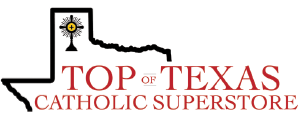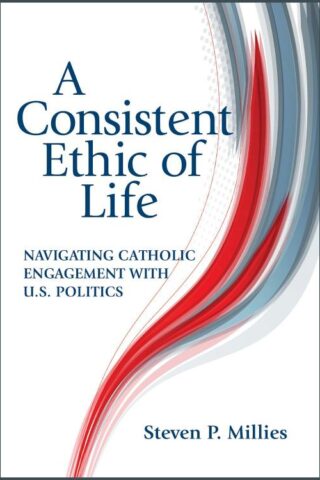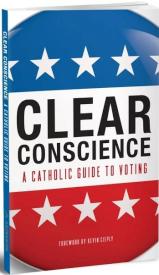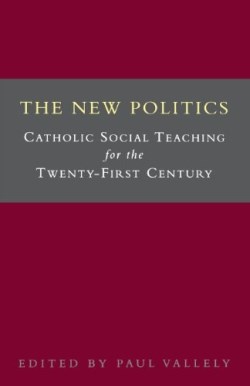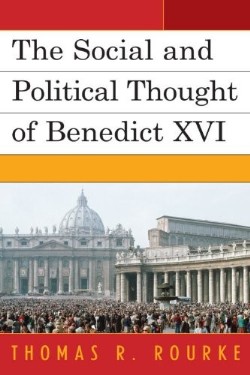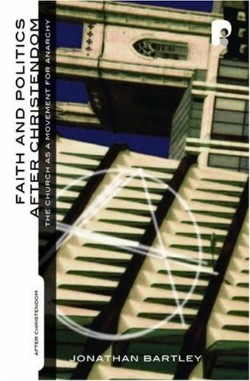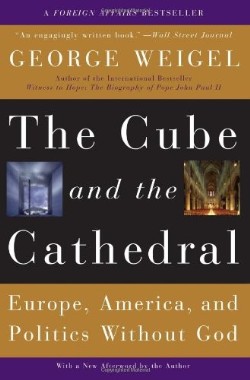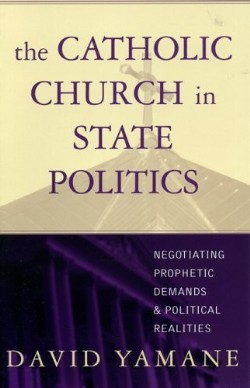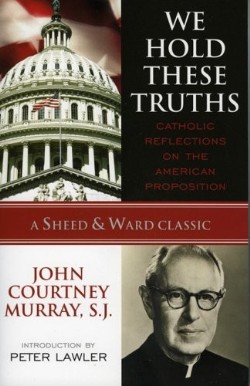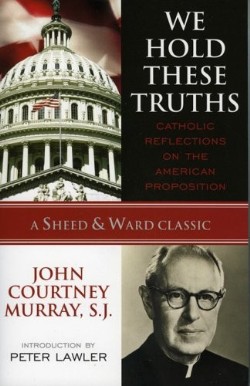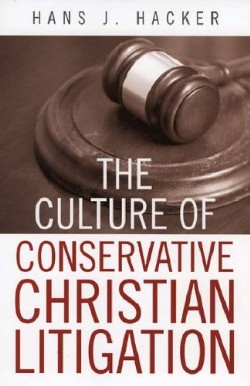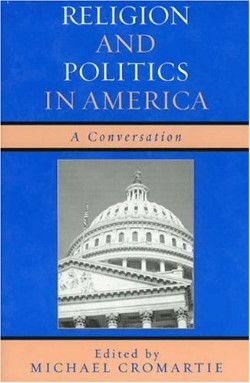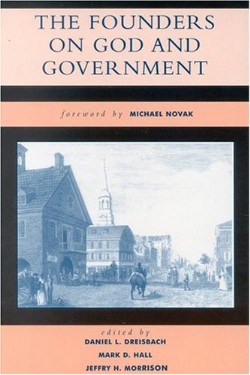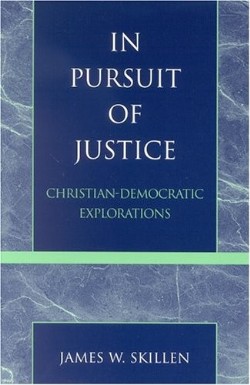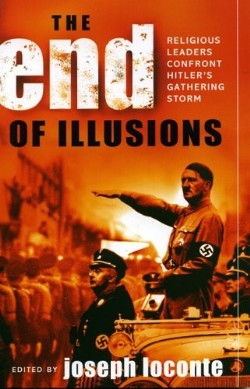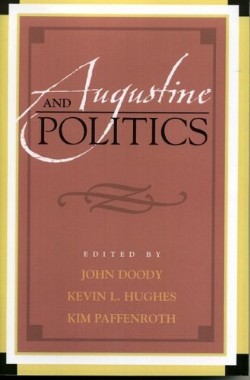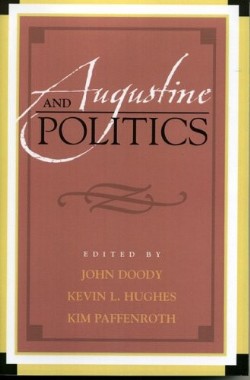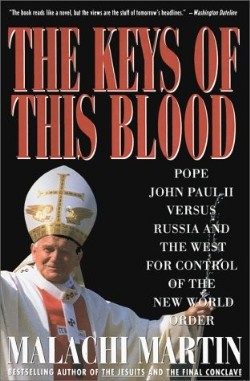Politics
Showing all 19 resultsSorted by latest
-
Consistent Ethic Of Life
$18.95Add to cartThe consistent ethic of life is a fully Catholic engagement with the difficult challenges that conscience encounters in our time. This short book is a resource for parishes and general readers to rediscover the consistent ethic now in this challenging, divided moment of our history.
Tracing the historical development of the consistent ethic from the early 1970s up to recent days, A Consistent Ethic of Life encourages readers to adopt an attitude that calls them to be partisans for life above the partisanship of our politics.
-
Clear Conscience : A Catholic Guide To Voting
$12.95Add to cartVote with Confidence and Without Regret
Clear Conscience: A Catholic Guide to Voting identifies the responsibilities of Catholics to our Faith and to our country as we make voting decisions. It provides thorough guidance to help Catholics navigate the most important issues facing our nation, issues that are ultimately decided by all of us as voters.
The United States was born out of revolution, and its founding principles are still revolutionary. Our historically unprecedented Declaration of Independence and Constitution enshrine the legal rights to life, liberty, and the pursuit of happiness for every person. But the interpretation of these truths today varies widely across the fascinating tapestry of America.
Our freedoms as citizens in a democracy are both a wonderful privilege and a lofty responsibility. As the political climate grows more confusing with the rising concerns and demands of different groups, where do we as Catholics stand?
Through the insights in Clear Conscience, you will learn:
*What the rights of every person are
*Our responsibility to uphold and defend those rights
*How to understand specific political issues
*How the Catholic tradition has contributed to a free and just societyThis book will not tell you who to vote for. That is a decision only you can make. Instead, it will give you the guidance you need to vote with a clear conscience.
-
New Politics : Catholic Social Teaching For The Twenty First Century
$25.00Add to cartFor more than a century the Catholic Church has closely scrutinized the economic certainties of capitalism and communism. As a result, it has slowly developed an entirely new position from which today to survey the capitalist leviathan. What this book sets out to do is to chronicle that development and highlight the insights it has formed which have a particular resonance for the world as it enters the . twenty-first century. Michael Walsh describes developments from Rerum Novarum to Vatican II, and Brian Davies the work of John XXIII and Vatican II itself. Julian Filochowski looks at the early social doctrine of Paul VI, and the encyclicals of John Paul II are discussed by Ian Linden, Clifford Langley and Julie Clague. Finally, Paul Vallely looks into the new millennium beyond John Paul II. The book is an important contribution to political and social thought at the beginning of the new millennium. Authoritative, positive and open, its appeal is far from restricted to Catholics or even Christians. Its distinguished contributors offer suggestions for a thought which might combine economic efficiency with social concerns to create a more compassionate community. The tools are there for those with the foresight and courage to take them up. Paul Vallely writes on current social, ethical and political issues for The Independent. He is also the Chair of the Catholic Institute for International Relations and of Traidcraft Exchange.
-
Social And Political Thought Of Benedict 16
$113.00Add to cart1. Introduction
2. Anthropological Foundations
3. Revelation, Reason, And Politics
4. Special Topics
5. Culture And Society
ConclusionAdditional Info
Covering the entire trajectory of his religious life, this meticulously researched book identifies the roots of political and social order in Pope Benedict XVI’s philosophy and analyzes his views on the role of Christian faith in politics. Although not generally characterized as a political philosopher, the Benedict’s writings shed significant and unique light on the world of politics today. In an age when modern politics has lost sight of its proper relationship within the larger scheme of human affairs and existence, Thomas R. Rourke shows that, as both Pope and the former Cardinal Ratzinger, Benedict has made a conscious effort to relate political issues to the broader dialogue on human endeavor, ethics, and culture.Bringing to the fore Benedict’s belief on the necessary place of the Christian tradition in a contemporary politics of reason, Rourke details the Pope’s contribution to solving the deeper problems of politics today. A valuable study in political theory and religion, this book should be read by those interested in Catholic social and political thought.
-
Faith And Politics After Christendom
$29.99Add to cartSuggest that where the church has previously defended the social order, it now has a brand new opportunity to exercise its prophetic role, challenging injustice, shaking institutions and undermining some of the central values and norms on which society is built.
-
Cube And The Cathedral
$19.99Add to cartWhy do Europeans and Americans see the world so differently? Why do Europeans and Americans have such different understandings of democracy? Contrasting the civilization that produced the starkly modernist “cube” of the Great Arch of La Defense in Paris with the civilization that produced the “cathedral” of Notre-Dame, George Weigel argues that Europe’s embrace of a narrow secularism has led to a crisis that is eroding Europe’s soul and threatening its future-with dire lessons for the rest of the democratic world. Weigel traces the origins of the atheistic humanism of 19th-century European intellectual life, which set in motion a historical process that produced two world wars, three totalitarian systems, the Gulag, Auschwitz, the Cold War-and, most ominously, the Continent’s de-population, which is worse today than during the Black Death. And yet, many Europeans still insist that only a public square shorn of religiously-informed moral argument is safe for human rights and democracy. Precisely the opposite, Weigel suggests, is true: the people of the “cathedral” can give a compelling account of their commitment to everyone’s freedom; the people of the “cube” cannot. In the final analysis, societies are only as great as their spiritual aspirations.
-
Catholic Church In State Politics
$46.00Add to cartIntroduction: The Governor And The Archbishop
History: From John Carroll To The Maryland Catholic Conference
Organization: State Catholic Conferences As Dual Structures
Issues: The Seamless Garment In Action
Legitimacy: Political Influence And The Catholic Watergate
Discourse: Liberally Clothing The Naked Public Square
Conclusion: Catholic Political Advocacy In Secular Society: Future Challenges
Appendix
Additional Info
What role, if any, should religion play in politics? By what authority and methods does the Catholic Church apply its teachings to public policy discourse? How do Bishops and lay leaders work together in Catholic conferences, and how do they work with political leaders? What impact do they have?The political advocacy of the American Catholic Bishops at the state level is one of the Church’s best-kept secrets. In this groundbreaking work, David Yamane reveals the rich history, accomplishments, and challenges of bishops and their lay colleagues in local politics. Through sociological analysis, up-to-date examples, and personal interviews, Yamane explains how the local Catholic advocacy organizations in thirty-three states and Washington, D.C., negotiate the tension between the prophetic demands of faith and the political realities of secular political institutions. The Catholic Church in State Politics invites readers to understand better the role of religion in the public square.
-
We Hold These Truths
$120.00Add to cartThe 1960 publication of We Hold These Truths marked a significant event in the history of modern American thought. Since that time, Sheed & Ward has kept the book in print and has published several studies of John Courtney Murray’s life and work. We are proud to present a new edition of this classic text, which features a comprehensive introduction by Peter Lawler that places Murray in the context of Catholic and American history and thought while revealing his relevance today.
From the new Introduction by Peter Lawler:
The Jesuit John Courtney Murray (1904-67) was, in his time, probably the best known and most widely respected American Catholic writer on the relationship between Catholic philosophy and theology and his country’s political life. The highpoint of his influence was the publication of We Hold These Truths in the same year as an election of our country’s first Catholic president. Those two events were celebrated by a Time cover story (December 12, 1960) on Murray’s work and influence. The story’s author, Protestant Douglas Auchincloss, reported that it was “The most relentlessly intellectual cover story I’ve done.” His amazingly wide ranging and dense–if not altogether accurate–account of Murray’s thought was crowned with a smart and pointed conclusion: “If anyone can help U.S. Catholics and their non-Catholic countrymen toward the disagreement that precedes understanding–John Courtney Murray can.”
. . . Murray’s work, of course, is treated with great respect and has had considerable influence, but now it’s time to begin to think of him as one of America’s very few genuine political philosophers. His disarmingly lucid and accessible prose has caused his book to be widely cited and celebrated, but it still is not well understood. It is both praised and blamed for reconciling Catholic faith with the fundamental premises of American political life. It is praised by liberals for paving the way for Vatican II’s embrace of the American idea of religious liberty, and it is blamed by conservatives and traditionalists for obscuring the real conflicts between Catholicism and “Americanism.” Both the liberal praise and the conservative blame are somewhat misguided. The last thing Murray wanted to do is bring the church up-to-date with the latest currents in American thought. He wanted to show how distinctively Catholic thought could illuminate the authentic American idea of liberty. . . . We Hold These Truths at least offers the hope that C
-
We Hold These Truths
$46.00Add to cartThe 1960 publication of We Hold These Truths marked a significant event in the history of modern American thought. Since that time, Sheed & Ward has kept the book in print and has published several studies of John Courtney Murray’s life and work. We are proud to present a new edition of this classic text, which features a comprehensive introduction by Peter Lawler that places Murray in the context of Catholic and American history and thought while revealing his relevance today.
From the new Introduction by Peter Lawler:
The Jesuit John Courtney Murray (1904-67) was, in his time, probably the best known and most widely respected American Catholic writer on the relationship between Catholic philosophy and theology and his country’s political life. The highpoint of his influence was the publication of We Hold These Truths in the same year as an election of our country’s first Catholic president. Those two events were celebrated by a Time cover story (December 12, 1960) on Murray’s work and influence. The story’s author, Protestant Douglas Auchincloss, reported that it was “The most relentlessly intellectual cover story I’ve done.” His amazingly wide ranging and dense–if not altogether accurate–account of Murray’s thought was crowned with a smart and pointed conclusion: “If anyone can help U.S. Catholics and their non-Catholic countrymen toward the disagreement that precedes understanding–John Courtney Murray can.”
. . . Murray’s work, of course, is treated with great respect and has had considerable influence, but now it’s time to begin to think of him as one of America’s very few genuine political philosophers. His disarmingly lucid and accessible prose has caused his book to be widely cited and celebrated, but it still is not well understood. It is both praised and blamed for reconciling Catholic faith with the fundamental premises of American political life. It is praised by liberals for paving the way for Vatican II’s embrace of the American idea of religious liberty, and it is blamed by conservatives and traditionalists for obscuring the real conflicts between Catholicism and “Americanism.” Both the liberal praise and the conservative blame are somewhat misguided. The last thing Murray wanted to do is bring the church up-to-date with the latest currents in American thought. He wanted to show how distinctively Catholic thought could illuminate the authentic American idea of liberty. . . . We Hold These Truths at least offers the hope that C
-
Culture Of Conservative Christian Litigation
$55.00Add to cartPreface
The Culture Of Conservative Christian Litigation
A Place At The Table
Working For Equal Access
Wise As A Serpent And Innocent As A Lamb
Good Lawyers, Good Christians
Appendix: Table Of Cases
Additional Info
Over the past decade, conservative Christian public law firms have been some of the most active and aggressive litigators in the nation. Their efforts have impacted important policy areas including religion in the Public Square, school prayer, gay rights, ‘family values’ and abortion policy. But the Fundamentalist Christian/Evangelical social movement is not monolithic. In this probing and judicious work, Hacker explores and clarifies the influence of ideology on the goals and behavior of three leading conservative Christian law firms and how they differ in agendas and approach. He provides rich interview narratives that shed light on interest group behavior and how it is influenced by internal group characteristics. -
Religion And Politics In America
$49.00Add to cartIntroduction
Evangelicalism And American Life: A Conversation With Nathan Hatch, Grant Wacker, And Hanna Rosin
New Century, New Story-Line: Catholics In America: A Conversation With George Weigel And Kenneth L. Woodward
Can The Jews Survive America?: A Conversation With Jack Wertheimer And David Brooks
Does God Belong On The Stump?: A Conversation With Stephen Carter, Charles Krauthammer, And Leo Ribuffo
How The Faithful Voted: A Conversation With John C. Green And John DiIulio
How Should We Talk? Religion And Public Discourse: A Conversation With Jean Bethke Elshtain And William McGurn
The New Christian Right In Historical Context: A Conversation With Leo Ribuffo And David Shribman
The Rights And Wrongs Of Religion In Politics: A Conversation With Stephen Carter And Jeffrey Rosen
Discussion Participants
Index
Additional Info
As religiously grounded moral arguments have become ever more influential factors in the national debate-particularly reinforced by recent presidential elections and the creation of the faith-based initiative office in the White House-journalists’ ignorance about theological convictions has often worked to distort the public discourse on important policy issues. Pope John Paul II’s pronouncements on stem-cell research, the constitutional controversies regarding faith-based initiatives, the emerging participation of Muslims in American life-issues like these require political journalists in print and broadcast media to cover religious contexts that many admit they are ill-equipped to understand.Put differently, these news events reflect subtle theological nuances and deep faith commitments that shape the activities of religious believers in the public square. Inasmuch as a faith tradition is an active or significant participant in the public arena, journalists will need to better understand the theological sources and religious convictions that motivate this political activity.
The current national discourse has brought faith and its relationship to public policy to the forefront of our daily news. Since 1999, the Ethics and Public Policy Center, through the generosity of the Pew Charitable Trusts, has hosted six conferences for
national journalists to help raise the level of their reporting by increasing their understanding of religion, religious communities, and the religious convictions that inform the political activity of devout believers. This book contains the presentations and
conversations that grew out of those conferences
-
Founders On God And Government
$63.00Add to cartForeword: Religious Liberty
Michael Novak
PrefaceReligion And The Common Good: George Washington On Church And State
Vincent Philip Muoz
One Public Religion, Many Private Religions: John Adams And The 1780 Massachusetts Constitution
John Witte, Jr.
The Religious Rhetoric Of Thomas Jefferson
Thomas E. Buckley, S.J.
Religion And Politics In The Thought Of James Madison
Garrett Ward Sheldon
John Witherspoon’s Revolutionary Religion
Jeffry H. Morrison
Benjamin Franklin And The Role Of Religion In Governing Democracy
Howard L. Lubert
James Wilson: Presbyterian, Anglican, Thomist, Or Deist? Does It Matter?
Mark D. Hall
George Mason’s Pursuit Of Religious Liberty In Revolutionary Virginia
Daniel L. Dreisbach
Catholic Politics And Religious Liberty In America: The Carrolls Of Maryland
James R. Stoner
Afterword: Revolutionary-Era Americans: Were They Enlightened Or Protestant? Does It Matter?
Barry Alan Shain
BibliographyAdditional Info
In God We Trust?” The separation of church and state is a widely contested topic in the American political arena. Whether for or against, debaters frequently base their arguments in the Constitution and the principles of the American founding. However, Americans’ perception of the founding has narrowed greatly over the years, focusing on a handful of eminent statesmen.By exploring the work of nine founding fathers, including often overlooked figures like John Carroll and George Mason, The Founders on God and Government provides a more complete picture of America’s origins. The contributors, all noted scholars, examine the lives of individual founders and investigate the relationship between their religious beliefs and political thought. Bringing together original documents and analytical essays, this book is an excellent addition to the library of literature on the founding, and sheds new light on religion’s contributions to American civic culture.
-
In Pursuit Of Justice
$50.00Add to cartWhat Distinguishes A Christian-Democratic Point Of View?
Civil Society And Human Development
The Question Of Being Human
E Pluribus Unum And Faith-Based Welfare Reform
The Cause Of Racial Justice
Equal Education For All
Liberalism And The Environment
Citizenship And Electoral Reform
Additional Info
This is a series of eight essays on diverse public policy concerns that asks the questions: What does racial justice, or environmental protection, or family policy look like when approached from a Christian-democratic perspective? And what about the civil-society questions of welfare, education, and political participation? The author, James W. Skillen, argues that the roots of a Christian-democratic approach are neither liberal nor conservative, but pluralistic, opening the way to a healthy regard for both social complexity and government’s responsibility to uphold political community.Published in cooperation with the Center for Public Justice
-
End Of Illusions
$53.00Add to cartI The Peacemakers
A Road Away From War
Albert W. Palmer
Putting Christianity In Cold Storage
Albert W. Palmer
On Saving Civilization
Charles Clayton Morrison
What Can America Do For Peace?
Charles Clayton Morrison
A War For Imperialism
Charles Clayton Morrison
The Same Old War
John Haynes Holmes
The Causes Of War–Hitler
John Haynes Holmes
Nazi Atrocities And The American War Fever
Paul L. Blakely
All Will Be Lost By War
Paul L. Blakely
A Clash Of Imperialisms
Ernest Fremon Tittle
What Can Christians Do?
Georgia Harkness
What, Then, Should Churches Do?
Georgia Harkness
Keeping Christ Above The Strife
Harry Emerson Fosdick
II The ProphetsAn End To Illusions
Reinhold Niebuhr
Why The Church Is Not Pacifist
Reinhold Niebuhr
Christian Faith And The World Crisis
Reinhold Niebuhr
First Letter To The French Protestants
Karl Barth
Second Letter To The French Protestants
Karl Barth
A Letter To Great Britain
Karl Barth
Five Mournful Years For Jewry
Stephen S. Wise
Enemy Of Human Freedom
Stephen S. Wise
The Crime Of Crimes
Stephen S. Wise
The Darkest Political Tyranny
John Bennett
Irresponsible Idealism
Henry P. Van Dusen
The Christian As Citizen
Henry P. Van Dusen
Defending Justice Despite Our Own Injustice
Lynn Harold Hough
The Barbarian Alternative
Lewis Mumford
The Aftermath Of Utopianism
Lewis Mumford
III The Gathering StormWar And Peace
America’s Responsibility In The Present Crisis
Additional Info
The rise of Islamic radicalism has led to heated discussions about how best to address the threat of religious terror. Disputes covering the right and wrong of war with Iraq, and the even bigger war on terrorism, continue to rage across America. But this is not the first argument of this nature–America was faced with a similar moral dilemma on the eve of World War II. Fascism was conquering Europe, and religious leaders across the nation vehemently debated how to confront Nazi Germany.In The End of Illusions: Religious Leaders Confront Hitler’s Gathering Storm, Joseph Loconte brings together pieces from the most significant religious thinkers of the pre-war period. In these essays, the writers eloquently and passionately present their arguments for going to war or maintaining the peace. In doing so, they explore issues vibrantly relevant today, including the Christian cause for war, the problem of evil, and America’s role in the world. These urgently written pieces connect the past with the present and resonate with renewed clarity and poignancy
-
Augustine And Politics
$54.99Add to cartDedicatory Preface
Thomas F. Martin O.S.A.
Introduction
John Doody, Kevin L. Hughes, And Kim Paffenroth
Human Nature And Virtue In Relation To PoliticsUnited Inwardly By Love: Augustine’s Social Ontology
Phillip Cary
Truthfulness As The Bond Of Society
Robert P. Kennedy
Friendship As Personal, Social, And Theological Virtue In Augustine
Kim Paffenroth
Freedom Beyond Our Choosing: Augustine On The Will And Its Objects
David C. Schindler
Augustine’s Theory And Critique Of PoliticsBetween The Two Cities: Political Action In Augustine Of Hippo
Robert Dodaro O.S.A.
Democracy And Its Demons
Michael Hanby
Local Politics: The Political Place Of The Household In Augustine’s City Of God
Kevin L. Hughes
Augustine And The Politics Of Monasticism
Thomas F. Martin O.S.A.
The Glory And Tragedy Of Politics
Thomas W. Smith
Augustinian Influence And PerspectivesToward A Contemporary Augustinian Understanding Of Politics
Todd Breyfogle
Sexual Purity, “the Faithful,” And Religious Reform In Eleventh-Century Italy: Donatism Revisited
Louis I. Hamilton
The Enchanted City Of Man: The State And The Market In Augustinian Perspective
Eugene McCarraher
Machiavelli’s City Of God: Civic Humanism And Augustinian Terror
Paul WrightAdditional Info
The study of Augustine’s political teachings has suffered from a history of misreadings, both ancient and modern. It is only in recent years that the traditional lines of “Augustinian pessimism” have been opened to question. Scholars have begun to explore the broader lines of Augustine’s political thought in his letters and sermons, and thus have been able to place his classic text, The City of God, in its proper context. The essays in this volume take stock of these recent developments and revisit old assumptions about the significance of Augustine of Hippo for political thought. They do so from many different perspectives, examining the anthropological and theological underpinnings of Augustine’s thought, his critique of politics, his development of his own political thought, and some of the later manifestations or uses of his thought in the Middle Ages, the Renaissance, and today. This new vision is at once more bracing, more hopeful, and more diverse than earlier readings could have allowed. -
Augustine And Politics
$140.00Add to cartDedicatory Preface
Thomas F. Martin O.S.A.
Introduction
John Doody, Kevin L. Hughes, And Kim Paffenroth
Human Nature And Virtue In Relation To PoliticsUnited Inwardly By Love: Augustine’s Social Ontology
Phillip Cary
Truthfulness As The Bond Of Society
Robert P. Kennedy
Friendship As Personal, Social, And Theological Virtue In Augustine
Kim Paffenroth
Freedom Beyond Our Choosing: Augustine On The Will And Its Objects
David C. Schindler
Augustine’s Theory And Critique Of PoliticsBetween The Two Cities: Political Action In Augustine Of Hippo
Robert Dodaro O.S.A.
Democracy And Its Demons
Michael Hanby
Local Politics: The Political Place Of The Household In Augustine’s City Of God
Kevin L. Hughes
Augustine And The Politics Of Monasticism
Thomas F. Martin O.S.A.
The Glory And Tragedy Of Politics
Thomas W. Smith
Augustinian Influence And PerspectivesToward A Contemporary Augustinian Understanding Of Politics
Todd Breyfogle
Sexual Purity, “the Faithful,” And Religious Reform In Eleventh-Century Italy: Donatism Revisited
Louis I. Hamilton
The Enchanted City Of Man: The State And The Market In Augustinian Perspective
Eugene McCarraher
Machiavelli’s City Of God: Civic Humanism And Augustinian Terror
Paul WrightAdditional Info
The study of Augustine’s political teachings has suffered from a history of misreadings, both ancient and modern. It is only in recent years that the traditional lines of “Augustinian pessimism” have been opened to question. Scholars have begun to explore the broader lines of Augustine’s political thought in his letters and sermons, and thus have been able to place his classic text, The City of God, in its proper context. The essays in this volume take stock of these recent developments and revisit old assumptions about the significance of Augustine of Hippo for political thought. They do so from many different perspectives, examining the anthropological and theological underpinnings of Augustine’s thought, his critique of politics, his development of his own political thought, and some of the later manifestations or uses of his thought in the Middle Ages, the Renaissance, and today. This new vision is at once more bracing, more hopeful, and more diverse than earlier readings could have allowed. -
Keys Of This Blood
$41.99Add to cartContents
734 Pages In 36 Chapters
Additional Info
Only Malachi Martin, consummate Vatican insider and intelligence expert, could reveal the untold story behind the Vatican’s role in today’s winner-take-all race against time to establish, maintain, and control the first one-world government.
*Will America lead the way to the new world order?
*Is Pope John Paul II winning the battle for faith?
*Is the breakup of the Soviet empire masking Gorbachev’s worldwide agenda?The Keys of This Blood is a book of stunning geopolitical revelations. It presents a compelling array of daring blueprints for global power, and one of them is the portrait of the future.
